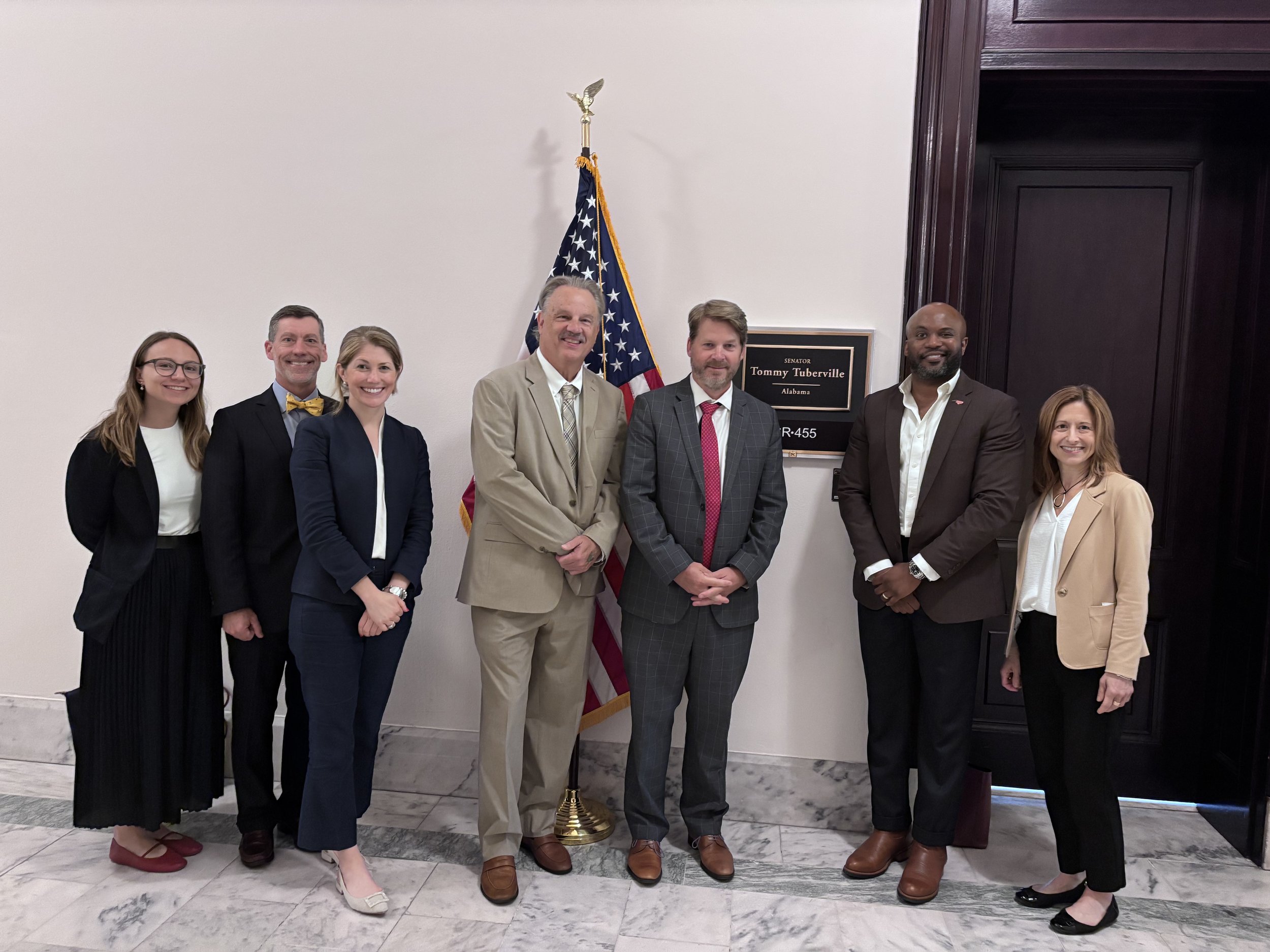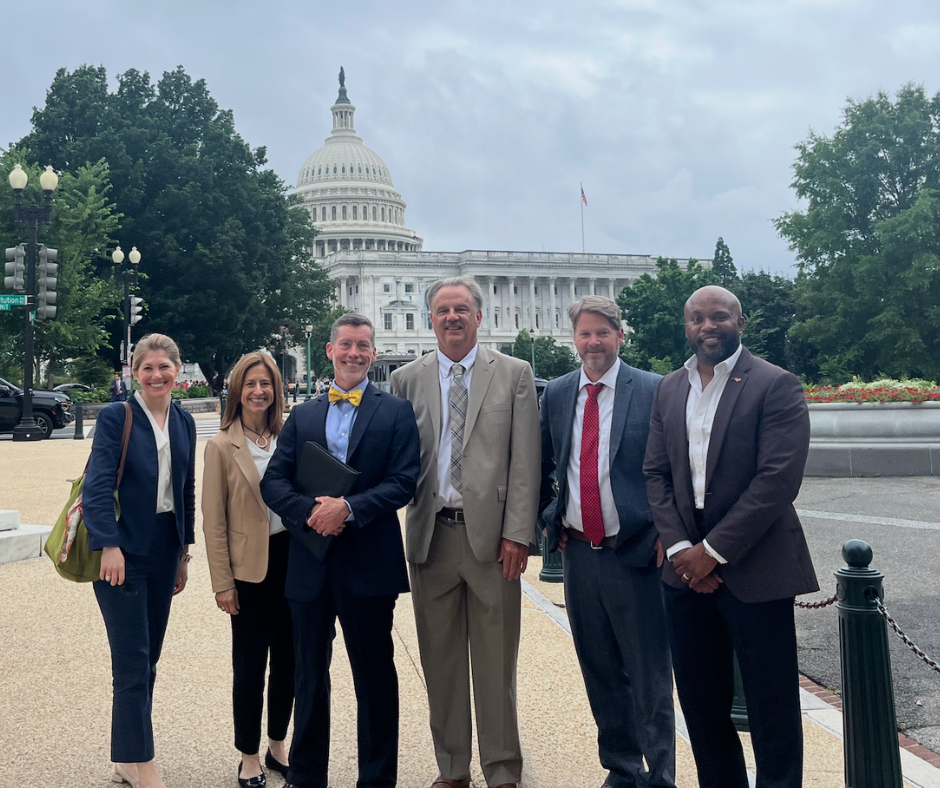Chambers Take Clean Energy Message to Capitol Hill with Jobs, Investments, and Economic Growth at Stake
Chambers for Innovation and Clean Energy (CICE) was back in Washington, D.C. on June 17, alongside chambers of commerce from across the country, making the business case for clean energy. As Congress considers the future of key clean energy tax credits in the Inflation Reduction Act (IRA), chamber leaders are delivering a clear message: clean energy means local jobs, stronger regional economies, and billions in investment nationwide.
CICE brought real-world economic insights directly to Capitol Hill from chamber leaders representing the Ohio Chamber, Greater Cleveland Partnership, and the Greater Winston-Salem Chamber.
The Senate Finance Committee’s version of the One Big Beautiful Bill Act (OBBBA, which was released the same day CICE’s delegation arrived) made some improvements over the House bill but still raised serious concerns for chambers focused on jobs and regional investment. Phasing out tax credits for wind and solar earlier than for other technologies threatens to slow the billions in private investment these projects bring to communities—investments that drive economic growth, strengthen local businesses, and expand the tax base. New supply chain restrictions in the bill also make it harder for American manufacturers to compete, especially those who produce and assemble components under one roof, risking sending jobs and investment overseas just as chambers are working to attract clean energy manufacturing and supply chain investments to their regions.
Chambers of commerce and economic development organizations have seen firsthand how clean energy projects can strengthen regional economies and support a strong workforce. Extending these credits through at least 2029 is critical to sustaining that momentum.
Clean energy development means new demand for local goods and services, from contractors to restaurants and retailers. But without smart, long-term policy that keeps domestic production strong, communities stand to lose out on thousands of jobs and millions in investment.
If you’re a chamber or economic development leader who wants to learn more about what these changes mean for your community, join us in a future D.C. fly-in, or find out how to support clean energy projects in your community, please contact Rob Bradham, CICE’s Director of Policy.
Chambers of commerce have a unique role to play as the voice of business. Now is the time to make sure clean energy policy continues working for American businesses and communities.









